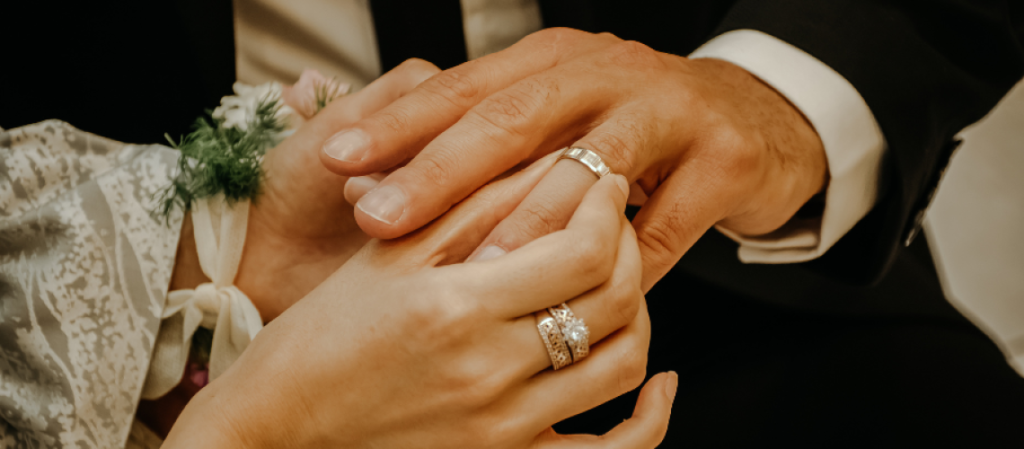Marriage Tax Allowance – Claim Up To £1256 Tax Rebate
Marriage Tax Allowance is available for over 2 million couples to claim. For the 2024/25 tax year, the allowance is worth £252. Even better, couples can claim retrospectively for the previous four tax years, potentially securing a total rebate of up to £1,255.
We will explain who qualifies for the Marriage Tax Allowance and provide step-by-step instructions to help you claim it.
Marriage Tax Allowance
(Personal Tax Allowance is the income threshold before income tax is applied).

What is the Marriage Allowance?
Typically, individuals with earnings below the personal allowance will waste some of their tax free amount each year. For example an individual with only £7,000 earnings will be wasting £5,570 of their tax free allowance.
Wouldn’t it be good if you could transfer some of this unused tax free allowance onto your partner so their tax free allowance is higher? Thus, resulting in them paying less income tax.
This is what the marriage allowance sets out to achieve.
How much of the personal allowance can be transferred?
Increasing your partners’ personal allowance by £1,257 will reduce their income tax liability by £252. (Income tax rate is 20% for basic rate taxpayers, therefore £1,257 x 20% equals £252).
How much can you claim?
The marriage allowance reclaim for the tax year 2024/25 is £252. This can be increased to a tax rebate amount of £1,256. This is possible by back dating your claim up to the maximum of 4 years.
This is illustrated as follows:
– 2023/24 tax year – £252 reclaim
– 2022/23 tax year – £252 reclaim
– 2021/22 tax year – £252 reclaim
– 2020/21 tax year – £250 reclaim
Add onto these figures the £252 for the 2023/24 tax year and the total amount is £1,256.
Who can claim the Marriage Allowance?
To be able to claim the marriage allowance the following conditions must apply:
1. Must be married or in a civil partnership (co-habiting couples don’t count).
2. One individual must earn under £12,570 (2023/24 personal allowance).
3. Their partner must be a basic tax rate payer. Earn between £12,570 and £50,270 (2023/24).
4. Both individuals must be born on or after 6 April 1935.
To summarise, you must be a non-taxpayer and your partner is a basic rate taxpayer.
How to claim the Marriage Allowance?
The information required includes National Insurance Numbers and a form of Identification.
IMPORTANT: It must be the non-taxpayer who makes the claim. They are authorising for part of their tax allowance to be transferred.
How to make a claim for the marriage allowance in previous years?
To be able to reclaim marriage allowance for previous years you must satisfy the conditions for that tax year.
The tax allowance rates change every year so you will need to check for each year that you were a non-taxpayer and your partner was a basic tax payer.
As an example to be able to claim the £252 in the tax year 2022/23, the following conditions apply:
1. You must have been married or in a civil partnership.
2. Partner 1 must earn under £12,570 (Personal Allowance rate 2022/23).
3. Partner 2 must earn between £12,570 and £50,270 (2022/23 Basic Rate Tax).
4. Both born after April 1935.
What happens after you’ve applied for the allowance?
Claims relating to the tax year 2023/24 will see an adjustment in the tax coding notices. The non-taxpayer tax code will include an N and the basic rate taxpayer will have an M added to their tax code.
You don’t need to reapply in future tax years. Typically the tax code will continue to include the marriage allowance. How to understand the tax codes?.
Marriage Allowance Example
A married couple has partner 1 earning £7,000 per annum and partner 2 earning £32,000 per annum.
Without marriage allowance the income tax liabilities for 2023/24 tax year would be as follows:
Partner 1 | Partner 2 | |
Earnings | £7,000 | £32,000 |
Personal Allowance | £12,570 | £12,570 |
Taxable Earnings | £Nil | £19,430 |
Basic Rate Tax Rate | 20% | 20% |
Income Tax Payable | £Nil | £3,886 |
With marriage allowance claim the income tax liabilities would be as follows:
Partner 1 | Partner 2 | |
Earnings | £7,000 | £32,000 |
Personal Allowance | £11,313 | £13,827 |
Taxable Earnings | £Nil | £18,173 |
Basic Rate Tax Rate | 20% | 20% |
Income Tax Payable | £Nil | £3,634 |
The tax reduces from £3,886 to £3,634, which is the £252 tax free cash amount mentioned earlier.
Non-taxpayer Earns £12,000
The marriage allowance allows for the transfer of 10% of the personal allowance. It is either 10% or nothing.
Therefore a situation can arise where the non-taxpayer after transferring 10% of their personal allowance will need to pay income tax.
For example a non-taxpayer earning £12,000 can still claim the marriage allowance in 2023/24.
Their new personal allowance will be £11,313 and as a result will pay tax on £687, which is £137 tax.
Partner 2 would still be saving £252 in tax, so the total tax paid by both partners will still be lower. In this example it is £115 less tax. It is therefore almost always worth claiming whenever possible.
There is one situation in which you should NOT apply for the allowance. That is where both incomes are close to the personal allowance, with one just below and one just above.
Conclusion on the Marriage Allowance
As stated an estimated 2 million couples are being offered £252 cash but are not claiming it. This can increase to £1,255 if you can claim back the full 4 years.
Do not be one of those statistics.
FEES - NO CLAIM NO COST
Our fees for a successful claim only will be 20% of the net benefit that you receive from the HMRC .
Claim Your HMRC Marriage Tax Allowance with Us
Take advantage of your Marriage Allowance today! Click the link below to check your eligibility or to claim your Marriage Tax Rebate. At Claim My Tax Back, we provide a No Win, No Fee guarantee, ensuring you don’t miss out on what you’re entitled to.




